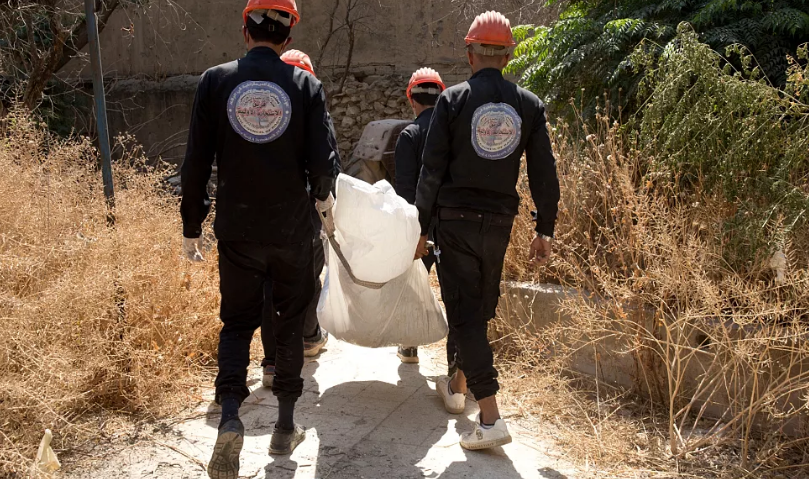The remains of at least 30 individuals believed to have been executed by the so-called Islamic State (IS) group have been uncovered in northern Syria, Qatari authorities confirmed Sunday. The discovery was made in the town of Dabiq, near the Turkish border, during a joint operation involving Qatari security forces and the U.S. Federal Bureau of Investigation (FBI).
According to a statement from Qatar’s internal security services, the search was carried out at the request of the FBI. DNA testing is currently underway to confirm the identities of the victims. While the statement did not name specific individuals being sought, the site is believed to be linked to a wave of high-profile abductions and killings carried out by IS during its control of parts of Syria and Iraq.
The extremist group seized vast swathes of territory across both countries from 2014 to 2017, proclaiming a self-styled caliphate. During that period, IS was responsible for the kidnapping and execution of numerous foreign journalists and humanitarian workers. Among the most well-known victims were American reporters James Foley and Steven Sotloff, aid workers Kayla Mueller and Peter Kassig, and British journalist John Cantlie, who appeared in several IS propaganda videos before vanishing from public view in 2016.
Dabiq, where the remains were found, held symbolic significance for the group and featured prominently in its ideological propaganda. The town was recaptured by Turkish-backed forces in 2016, but the full extent of atrocities committed there is still coming to light.
The recent discovery comes amid ongoing efforts to locate and identify victims of IS violence and bring some closure to families who have spent years searching for answers.
In a related development, mass graves have also been reported in areas formerly under the control of Syrian President Bashar al-Assad, whose government was ousted in a rapid insurgency last December, ending five decades of family rule. Assad’s regime had long been accused of widespread human rights abuses, including the enforced disappearance of political opponents and dissidents.
According to a 2021 United Nations estimate, more than 130,000 Syrians remain missing after the 2011 uprising, which spiraled into a brutal civil war.
The ongoing investigations underscore the scale of the human toll in Syria over the past decade, as both extremist groups and state actors left behind a legacy of violence and unmarked graves.
Would you like this adapted for international or regional news outlets?


